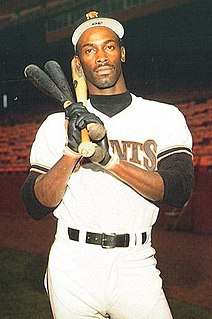A Quote by Susanna Kearsley
After the loss of my sister - my darkest time - I tried to think of the beauty she'd brought to this world and the lives she had touched and the love she had left behind.
Related Quotes
Ruth hadn't talked to my sister since before my death, and then it was only to excuse herself in the hallway at school. But she'd seen Lindsey walking home with Samuel and seen her smile with him. She watched as my sister said yes to pancakes and no to everything else. She had tried to imagine herself being my sister as she had spent time imagining being me.
She had witnessed the world's most beautiful things, and allowed herself to grow old and unlovely. She had felt the heat of a leviathan's roar, and the warmth within a cat's paw. She had conversed with the wind and had wiped soldier's tears. She had made people see, she'd seen herself in the sea. Butterflies had landed on her wrists, she had planted trees. She had loved, and let love go. So she smiled.
She turned to face him. She reached over and touched his hand, hesitantly, gently, amazed that after all these years had somehow known exactly what she'd needed to hear. When their eyes locked, she once again realized how special he was. And just for a fleeting moment, a tiny wisp of time that hung in the air like fireflies in summer skies, she wondered if she was in love with him again.
The girl had a certain nobleness of imagination, which rendered her a good many services and played her a great many tricks. She spent half her time in thinking of beauty, bravery, magnanimity; she had a fixed determination to regard the world as a place of brightness, of free expansion, of irresistible action, she thought it would be detestable to be afraid or ashamed. She had an infinite hope that she would never do anything wrong. She had resented so strongly, after discovering them, her mere errors of feeling.
Before her marriage she had thought that she had love within her grasp; but since the happiness which she had expected this love to bring her hadn’t come, she supposed she must have been mistaken. And Emma tried to imagine just what was meant, in life, by the words “bliss,” “passion,” and “rapture” - words that had seemed so beautiful to her in books.
My sister is a good story of resiliency. She had a full ride at UC Davis, but she left school to go to the Philippines - and then she decided to go back to school in her 40s, which surprised me. She went to UC Berkeley, and I think she was one of two African Americans in her class at Haas. She's really impressive.
"She (Minnie Ruth Solomon) was unusual because even though I knew her family was as poor as ours, nothing she said or did seemed touched by that. Or by prejudice. Or by anything the world said or did. It was as if she had something inside her that somehow made all that not count. I fell in love with her some the first time we ever talked, and a little bit more every time after that until I thought I couldn't love her more than I did. And when I felt that way, I asked her to marry me . . . and she said she would."
In this moment she felt that she had been robbed of an enormous number of valuable things, whether material or intangible: things lost or broken by her own fault, things she had forgotten and left in houses when she moved: books borrowed from her and not returned, journeys she had planned and had not made, words she had waited to hear spoken to her and had not heard, and the words she meant to answer with. . . .
Her first reaction was one of hope, because his eyes were open and shining with a radiant light she had never seen there before. She prayed to God to give him at least a moment so that he would not go without knowing how much she had love him despite all their doubts, and she felt an irresistible longing to begin life with him over again so that they could say what they had left unsaid and do everything right that they had done badly in the past. But she had to give in to the intransigence of death. (Love in the Time of Cholera)
The tent in which she first met him had smelled of blood, of the death she did not understand, and still she had thought of it all as a game. She had promised him the world. His flesh in the flesh of his enemies. And much too late had she realized what he had sown in her. Love. Worst of all poisons.






































